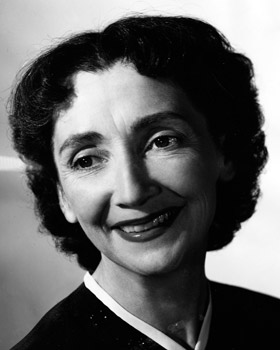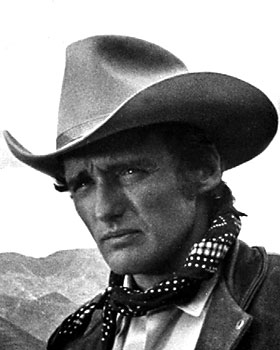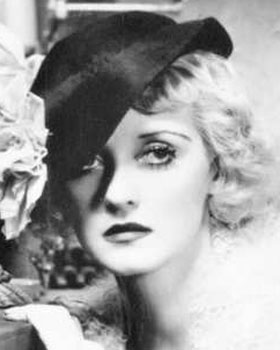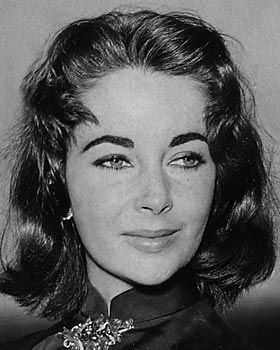Mildred Dunnock
Mildred Dunnock was the dramatic actress etched in the American consciousness as the long-suffering and indelibly loyal wife of Willy Loman in both stage and film versions of the classic tragedy "Death of a Salesman."
Dunnock was nominated for an Academy Award for her role in the 1951 screen version of the Arthur Miller play.
On Feb. 10, 1949, she and Lee J. Cobb made dramatic history when they opened at the Morosco theater on Broadway in Miller's piercing examination of the underside of salesmanship.
Identified throughout her career as Loman's infuriated but protective mate (Frederic March played the tragic-comic character in the movie), she also repeated the role of Linda Loman on TV in a CBS special (earning an Emmy nomination in 1967). She and Cobb also were nominated for a Grammy award in 1966 for a recording of the play.
Known generally for her portrayals of sympathetic wives and mothers or mildly eccentric women, she was forced by her parents to prepare for a teaching career rather than the dramatic one she hoped to choose.
However, she continued to dabble in community theater in New England and first appeared in New York in March 1932 in "Life Begins."
Alternating between regional theater and the New York stage, she played the Welsh schoolteacher Miss Ronberry in "The Corn Is Green" in 1940 and repeated that performance before the cameras when Warner Bros. adapted the play in 1945.
She was Big Mama in Tennessee Williams' stage production of "Cat on a Hot Tin Roof" when it opened at the Morosco in March 1955; Lavinia in Lillian Hellman's "Another Part of the Forest" (1946); and Mary Tyrone in "Long Day's Journey Into Night" in Montreal in 1961 and in New Haven in 1966.
Her performance in the movie version of Williams' "Baby Doll" in 1956 brought Dunnock a second Academy Award nomination.
She was an early student of Lee Strasberg's at the Actors Studio, working there with Maria Ouspenskaya and Elia Kazan.
She also taught — at the Yale Drama School, Harvard University and Barnard College — and performed with the Yale Repertory Theater.
In 1976, a New York Times writer called her "an institution among first-nighters, the creator of several major characters in American dramatic literature, a performer studied and revered by younger actors and actresses."
Related stars
|
|
Points of interest
Academy Awards
| Year | Category | Work | |
|---|---|---|---|
| 1951 | Best Supporting Actress | Death of a Salesman | Nomination |
| 1956 | Best Supporting Actress | Baby Doll | Nomination |






Two thoughts about Mildred Dunnock
Share a thought about Mildred Dunnock